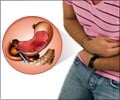A randomized trial finds that prenatal DHA supplementation did not result in improved cognitive, problem-solving or language abilities for children at four years of age.

Maria Makrides, B.Sc., B.N.D., Ph.D., of the South Australian Health and Medical Research Institute, Adelaide, Australia and colleagues conducted longer-term follow-up from a previously published study in which pregnant women received 800 mg/d of DHA or placebo. In the initial study, the researchers found that average cognitive, language, and motor scores did not differ between children at 18 months of age. For the follow-up study, outcomes were assessed at 4 years, a time point when any subtle effects on development should have emerged and can be more reliably assessed.
The majority (91.9 percent) of eligible families (DHA group, n = 313; control group, n = 333) participated in the follow-up. The authors found that measures of cognition, the ability to perform complex mental processing, language, and executive functioning (such as memory, reasoning, problem solving) did not differ significantly between groups.
"Our data do not support prenatal DHA supplementation to enhance early childhood development."
Source-Eurekalert
 MEDINDIA
MEDINDIA




 Email
Email










